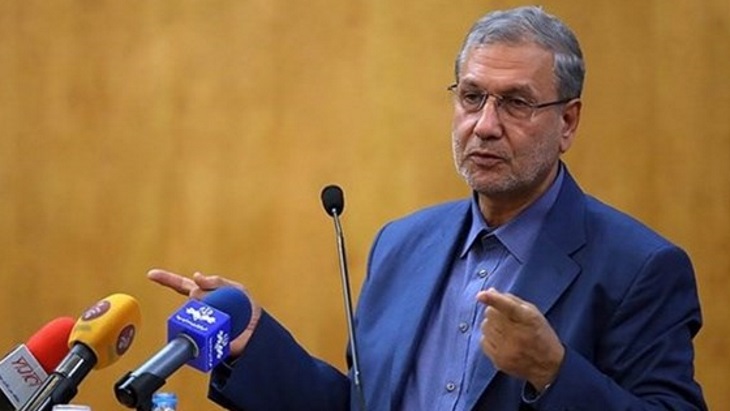At the turn of the year, Tehran informed IAEA Director General Rafael Mariano Grossi that it planned to start 20% uranium enrichment, which is a purity level five times' that which it agreed under the Joint Comprehensive Plan of Action (JCPoA). The announcement followed the passing of a new law in December by the Majles, the Iranian parliament, which requires the AEOI to produce at least 120 kg of 20% enriched uranium annually at the Fordow nuclear site. The law also stipulates that Iran will no longer be bound by the NPT Safeguards Agreement and Additional Protocol it had signed with the IAEA, meaning that access to its nuclear sites by international inspectors would cease.
The E3 said they were "deeply concerned" by Iran’s latest announcement.
"Iran has no credible civilian use for uranium metal. The production of uranium metal has potentially grave military implications," they said, adding that, under the JCPoA, Iran had committed to not engaging in production of uranium metal or conducting research and development on uranium metallurgy for 15 years.
"We strongly urge Iran to halt this activity, and return to compliance with its JCPoA commitments without further delay if it is serious about preserving the deal," they said.
According to the Tasnim news agency, the AEOI sought to clarify the E3 statement.
"The issue of the factory producing uranium metal, which is stipulated in Article 4 of 'The Strategic Action to Lift Sanctions and Protect the Iranian Nation's Rights Act' and which the AEOI is obliged to do as instructed by the Parliament, and the issue of the production of advanced fuel (silicide) to be used at the Tehran Research Reactor are two completely different issues," the AEOI said.
The AEOI added that it had not yet provided the IAEA with information on the Design Information Questionnaire for the uranium metal production plant, which is the subject of Article 4 of the Statute of the IAEA. "This information will be provided after the required measures are adopted, and duly at the specified time stipulated in the relevant law," it said.
The plan to produce advanced fuel (silicide) was presented to the IAEA for the first time over two years ago, and during this time, complementary information as well as information on the design information questionnaire has been sent to the IAEA in several phases, it said. "Moreover, it is reminded that in the early 1980s, the IAEA was sent a report on the successful implementation, at a preliminary level and to a small extent, of research and development work regarding the production of uranium metal for peaceful and conventional purposes," it said.
"It needs to be explained that uranium metal is an intermediary product in the process of producing advanced fuel (silicide), which is immediately produced afterwards during the non-stop production process. It is hoped that the IAEA will avoid mentioning unnecessary details in it reports to eliminate any grounds for misunderstanding," it said.
Iranian government spokesman Ali Rabiyee dismissed media claims that US President-elect Joe Biden's team had been in talks with Tehran about the JCPoA.
According to the Fars news agncy, Rabiyee said today: "Our focus now is on the full revival of the nuclear deal by all parties to the agreement and we expect the new US administration to focus on gaining Iran's trust through the full and immediate implementation of all its undertakings. The US government should first implement its undertakings under the nuclear deal and the UN Security Council Resolution 2231, and this is the only way forward for the new US administration."
Iranian Envoy and Permanent Representative to the United Nations Majid Takht Ravanchi said yesterday: "There is a timetable in the [Iranian] parliament’s bill and we are moving in the same direction, so we [at the foreign ministry] are not entitled to specify the period for how long we will wait. In the first place, we make decisions based on national interests, and secondly, we should act on the basis of and within the framework of the parliamentary bill."
Meanwhile, Ali Akbar Salehi, the head of the AEOI, announced that the country is at present producing nearly half a kilo of uranium enriched to the 20% purity level per day.
"Based on the latest news I have, they (the Iranian scientists at nuclear installations) are producing 20 grams (of 20% enriched uranium) every hour; meaning that practically, we are producing half a kilo every day,” Salehi said in an interview with the Persian-language Khamenei.ir website released yesterday.
"We produce and store this 20% (enriched uranium) and if they return to the nuclear deal, we will return to our undertakings too,” he added.
Asked about the recent bill approved by the parliament to adopt strategic measures to remove sanctions against Iran, Salehi said that the AEOI is required to implement it. "It is a reality and both the government and the AEOI have declared that they do not have any technical problems with implementation of the parliament’s bill and we launched 20% enrichment within 24 hours," he said.






_18570.jpg)
_16159.jpg)
_49205.jpg)





